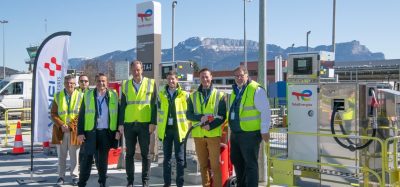African airports accelerate action to reduce carbon emissions
- Like
- Digg
- Del
- Tumblr
- VKontakte
- Buffer
- Love This
- Odnoklassniki
- Meneame
- Blogger
- Amazon
- Yahoo Mail
- Gmail
- AOL
- Newsvine
- HackerNews
- Evernote
- MySpace
- Mail.ru
- Viadeo
- Line
- Comments
- Yummly
- SMS
- Viber
- Telegram
- Subscribe
- Skype
- Facebook Messenger
- Kakao
- LiveJournal
- Yammer
- Edgar
- Fintel
- Mix
- Instapaper
- Copy Link
Posted: 31 October 2022 | International Airport Review | No comments yet
At Airports Council International Africa/World Annual General Assembly 2022, the new entries and upgrades were announced for the Airport Carbon Accreditation, with a particular focus on airports in Africa.


As the global community of airport operators and aviation stakeholders gathers in Marrakesh, Morocco for the 2022 Airports Council International Africa/World Annual General Assembly, Airport Carbon Accreditation (ACA) has announced new entries and upgrades to higher levels of accreditation achieved – with a particular focus on airports in Africa.
The conference host, the Moroccan Airports Authority (ONDA) has met all the requirements to accredit two more airports within its network: Rabat-Salé Airport (RBA) and Fès Saïss Airport (FEZ), both joining the collective airport climate action at Level 1 ‘Mapping’. In addition, the two busiest airports operated by ONDA, Marrakesh Menara Airport (RAK) and Casablanca Mohammed V Airport, succeeded in upgrading to Level 2 ‘Reduction’ – the level at which airports are required to provide evidence of tangible CO2 reductions of emissions under their direct control.
In Tunisia, Monastir Habib Bourguiba International Airport (MIR) operated by TAV Airports joined the programme directly at Level 2 ‘Reduction’, following in the footsteps of Enfidha Hammamet International Airport (NBE), the first airport to become accredited in the continent and also the very first to reach Level 3 ‘Optimisation’. At Level 3, airports are not only achieving scope 1 and 2 CO2 reduction but also activating their business partners and stakeholders operating at the airport site to get them involved in measuring and reducing their own carbon emissions. La Réunion Roland Garros Airport (RUN) is the only other airport in the African region to ever reach this level of carbon management maturity. There is currently one carbon neutral airport on the continent, Abidjan Félix-Houphouët-Boigny International Airport (ABJ) in Côte d’Ivoire.
In total, 25 African airports1 in 13 countries are currently addressing their carbon emissions at one of the six levels available through the ACA framework. They jointly cover more than 40 per cent of African air passenger traffic (as per 2019 traffic levels).
Ali Tounsi, Secretary General of ACI Africa commented: “I am delighted to witness more and more African airports joining the Airport Carbon Accreditation programme and progressing to its higher levels. These achievements show that airports in the region are already contributing in very tangible ways to ICAO’s Long Term Aspirational Goal of net zero CO2 for international aviation by 2050 – as they are addressing and eliminating emissions under their own control, while also increasingly working with businesses operating at their premises to influence further CO2 reductions. Today we celebrate the achievements of the carbon accredited airports and encourage all African airports to join the momentum.”
Related topics
Airport Carbon Accreditation (ACA), Airside operations, Emissions, Sustainability, Sustainable development, Terminal operations
Related airports
Abidjan Félix-Houphouët-Boigny International Airport (ABJ), Casablanca Mohammed V Airport (CMN), Enfidha-Hammamet International Airport (NBE), Fès Saïss Airport (FEZ), Marrakesh Menara Airport (RAK), Monastir Habib Bourguiba International Airport (MIR), Rabat-Salé Airport (RBA), Roland Garros Airport (RUN)
Related organisations
Airport Council International (ACI), Airports Council International Africa (ACI Africa), International Civil Aviation Organization (ICAO), Moroccan Airports Authority (ONDA), TAV Airports


















